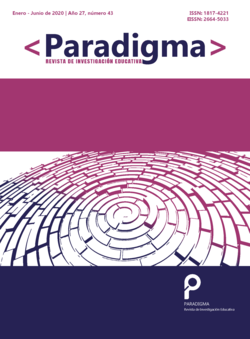Performance standards on mathematics for basic education in Honduras: a content analysis for the determination of its validity
DOI:
https://doi.org/10.5377/paradigma.v27i43.9878Keywords:
content standard, performance standard, performance level, coherence, validityAbstract
<p style="text-align: justify;">This study focuses on the validity of performance standards in mathematics for basic education. It analyzed the coherence between the conceptualization and operationalization of the standards using levels of performance and its relationship with content standards. This study follows the technic of content analysis, which uses performance standards as units of analysis. Categories that identify and classify the kind of evidence in favor or against the pretended coherence were created using the software Nvivo 8.
Although the concepts for both types of standards are aligned to international referents, this study found a lack of coherence among them. Six criteria present in the definition of performance standards were identified and used to explain this phenomenon. Finally, we found a lack of coherence among performance standards and its implementation. Consequently, the use of them as reference for planning and designing internal and external assessment is limited because of their lack of validity. The performance standards do not guarantee a reliable source for decision making.</p>
Downloads
599
Downloads
Published
How to Cite
Issue
Section
License
Transfer of Copyright
- The author, when sending the work, states that it is his will to give the Universidad Pedagógica Nacional Francisco Morazán the patrimonial rights that correspond to him as the author of his work.
- The rights here assigned include all economic rights (Reproduction, transformation, public communication and distribution) and are given without limitation in terms of territory; This Assignment is given for the entire duration term established in the current legislation in Honduras.
- The cession of the aforementioned rights does not imply the cession of moral rights over it, because in accordance with the provisions of the Copyright and Related Rights Law, Chapter II, of the Moral Rights, Article 34, Article 25 , these rights are inalienable, imprescriptible, indefeasible and inalienable.
- The research work or document must be original and have been done without violating or usurping rights of third parties, therefore, the work is exclusively authored and owns the same.
- In the case of any claim or action by a third party, as to copyright on the work in question, the author must assume full responsibility for the rights assigned.
- Upon completion of the Rights Assignment Form, the author states that the work has not been published in another way, that the rights on the work have not been assigned and that no encumbrance or limitation on their use or use is imposed on them.





